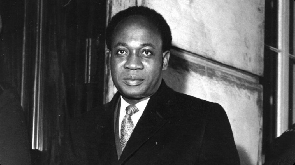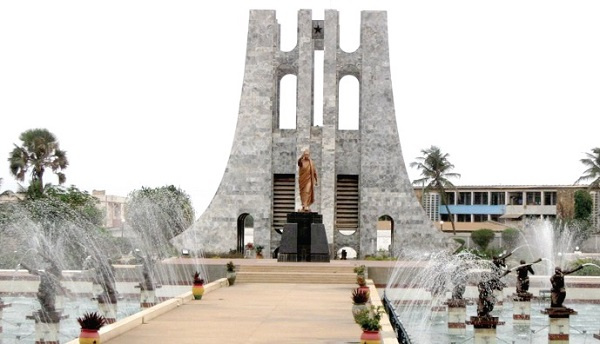 Since Ghana recorded its first two cases of the novel Coronavirus, President Nana Addo Dankwa Akufo-Addo, has been engaging Ghanaians through a regular recorded televised broadcast on measures his government has outlined to combat the spread of the virus.
Since Ghana recorded its first two cases of the novel Coronavirus, President Nana Addo Dankwa Akufo-Addo, has been engaging Ghanaians through a regular recorded televised broadcast on measures his government has outlined to combat the spread of the virus.
On his eighth broadcast to the nation on Sunday [April 26, 2020], Akufo-Addo presented to the people of Ghana some major decisions he has taken after consultations and meetings with the Council of State and some key stakeholders.
1. Maintaining existing measures and extending the ban on public gatherings
President Nana Addo Dankwa Akufo-Addo stated in his address that by Executive Instrument (EI 64), he has extended the suspension of all public and social gatherings for another two weeks effective today [Monday, April 27, 2020] whilst maintaining other existing measures “until we have a firm grip on the movement of the virus.”
This, he said, is supported by data and science.
2. Ghanaians must stop aiding foreigners into the country illegally
President Akufo-Addo noted that some unpatriotic Ghanaians are aiding some West African nationals to enter the country illegally despite the closure of Ghana’s borders due to the virus.
He said, this attitude is more disturbing as several of the West Africans, who have been arrested, have later tested positive for the virus.
“These are unpatriotic acts, and must stop. We cannot continue to allow a few persons, who are motivated by their own selfish, money-making interests, to endanger the lives of the rest of the population. Not only will persons who enter our country illegally be strictly dealt with, but so will Ghanaians who facilitate their entry. As I have said before, being a Ghanaian must mean that we look out for each other,” he said.
3. Coronavirus has exposed the deficiencies of our healthcare system
The president hinted that the outbreak of the novel virus has exposed some deficiencies in the health sector of the country.
He subsequently announced plans by his government to construct some hospitals in some 88 districts in the country without hospitals.
He continued, “we have six (6) new regions without regional hospitals; we do not have 5 infectious disease control centres dotted across the country; and we do not have enough testing and isolation centres for diseases like COVD-19. We must do something urgently about this. That is why Government has decided to undertake a major investment in our healthcare infrastructure, the largest in our history. We will, this year, begin constructing eighty-eight (88) hospitals in the districts without hospitals.”
He explained that 10 of the hospitals will be in the Ashanti Region, nine in Volta and Central Regions, eight in Eastern Region, seven in Greater Accra and Upper East Regions, five in Northern, Oti, Upper West, and Bono Regions, four Western North and Western Regions, three in Ahafo and Savannah Regions, as well as two in Bono East, and North East Regions.
4. Muslims must stay at home and pray
President Akufo-Addo appealed passionately to Muslims to stay at home and pray during throughout the period of Ramadan, something the Holy Prophet Muhammed has been advocating for any time there was heavy rain.
“Muslim scholars agree that ‘rain’ represented danger, and, therefore, the prescription for Muslims to stay at home and pray in times of heavy rain is applicable to all life-threatening situations. I, thus, call on all Muslims to heed this prophetic admonishment to pray at home, so we can protect ourselves from the danger of Covid-19. This is in line with the counsel of the wise, devout Muslim scholar, the Chief Imam, Sheikh Dr. Osman Nuhu Sharubutu. I wish all Muslims Ramadan Mubarak,” he said.
5. Govt makes strides in PPEs for health workers
The president indicated that the government has enabled significant domestic production and supply of protective equipment (PPEs) to health workers as they wage war on COVID-19.
“They have received, in recent days, nine hundred and five thousand, and thirty-one (905,031) nose masks, thirty one thousand, six hundred and thirty (31,630) medical scrubs, thirty one thousand, four hundred and seventy-two (31,472) gowns, forty-six thousand, eight hundred and seventy (46,870) head covers, and eighty-three thousand, five hundred (83,500) N-95 face masks,” he said.
6. Coronavirus fight will be a long war for Ghana
Akufo-Addo as part of his address said Ghana remains in unchartered territory in its fight against the novel Coronavirus.
“We are still very much in unchartered territory, and, clearly, we still have some way to go towards ridding ourselves of the virus. The truth is that this will be a long war, broken up into several battles,” the president acknowledged.
7. Compulsory wearing of face masks
President Nana Addo Dankwa Akufo-Addo said face masks are now mandatory for every Ghanaian to wear. This is part of the measures taken if Ghana wants to win the war against COVID-19.
He said some guidelines have been issued by the Health Minister which is to guide the general public on the production and mandatory wearing of the face masks.
“We should all familiarise ourselves with them, and apply them, as the Regional Co-ordinating Councils of the Greater Accra, Ashanti and Central Regions are demanding of their residents,” he added.
8. Akufo-Addo asks Ghanaians to support him defeat COVID-19
President Nana Addo Dankwa Akufo-Addo, has asked Ghanaians to continue to rally behind him to defeat the Coronavirus pandemic.
“This is the time for sacrifice, so that we do not have to bear a greater cost in the future,” he stated.
Watch the full address below.


